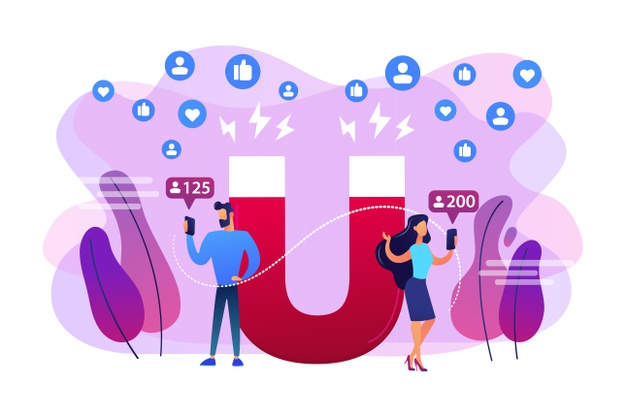For starters, the term “the best” is a wide term. One could think of a quality that can sustain them as a solo agent while others might think of lesser quality with a lot more quantity for a real estate team.
You will have to define what are your best real estate seller leads for your real estate lead generation at the end of this article.
Social Media Real Estate Seller Leads:
Social media is a great platform to generate real estate leads. These real estate leads will typically end up costing you less money per lead than other sources. The reason is simple. These leads have a strong call to action in a potential seller that might be three years out vs looking to sell their home now and needing a real estate agent to help them now.
In short, these ads are like billboards right in front of you with a strong call to action with the very easy ability for the potential lead that was not even looking for information prior to seeing your social media ad in their news feed. With just one click, they are on your home valuation landing page giving you their contact information.
Cold calling FSBO, Expired Listings, and Cancelled Listings:
Real estate agents who specialize in cold calling are the toughest of the toughest real estate agents. The cost to dial these real estate leads is very inexpensive, but the fight must be in the real estate agent to survive in this lead source. They are going up against other extremely skilled real estate agents who have mastered the scripts and rebuttals to win in the cold calling arena.
Once you have mastered your expired listings scripts and rebuttals, for example, you need to book your appointment usually within one to two hours from your phone call to be at their property fully ready to list it. If not, I assure you that other real estate agents will beat you out time after time.
Google Real Estate Seller Leads:
When you are looking for seller leads online, Google offers one of the best ways to attract higher-quality leads. A seller leads that first says, “I have a problem and I need a solution, so I am going to google it”, has just increased their quality score. Then once they visit your real estate seller landing page and provides you with their valid contact information, you just got a lead most likely looking to sell their home if not now, in the nearing future.
Unlike social media, real estate seller leads google ones had to think about it and seek it out.
Farming Real Estate Seller Leads:
Why should you generate seller leads through farming is a great question. Your quality of lead will increase with constant branding of yourself or your team to your local community. Even though you are constantly in front of them, they are actually seeking you out as google seller leads do.
The reason why this one will increase in their quality score is that your farming has increased their ability to trust you. Once the seller leads land on your landing page, they will be more likely to give you their valid contact information, unlike Google and social media. The quality score goes from Farming to google, to Social media in this order from higher to lower.
TV, Radio, and Billboard Real Estate Seller Lead:
When you generate seller leads from TV, Radio, and Billboards, you now are leveled up that much higher than even farming. Where farming is mainly local and can use a billboard too, TV and Radio can cover entire cities and counties. Potential home seller leads are seeing you constantly and building celebrity status over time. The issue in most real estate markets is that the average successful real estate agent cannot afford these advertising platforms.
However, the ones who can crack into these sources commonly end up getting high-quality and quantity real estate leads. Commonly you find your top real estate teams doing their real estate lead generation this way.
Past Clients and Sphere Real Estate Seller Leads:
If you are on a tighter budget but you still can afford to advertise and do a good amount of marketing to your past clients and sphere, this is a great source for a solo real estate agent. These without a question should be one of your highest quality real estate seller leads.
The reason why they are such an amazing source of real estate seller leads is that they already know you, like you, and trust you from your existing and prior relationships with them. This is why it could be the number real estate lead generation for solo agents.
Even though this is a scalable real estate lead generation method it is not the wisest one to scale for a real estate team. The last thing you want to do is spend all your money-making another real estate an all-star on your team with their past clients and sphere for them to just take your spend and walk away with all of your strong efforts and financial investment into their database.
Summarizing Up Your Real Estate Lead Generation Options:
While there are several different ways to get real estate leads, there will commonly only be one wise selection that meets your unique personality to generate seller leads. Plus for some real estate agents, will not be able to afford some of the platforms for real estate leads. This will leave them looking for different lead generation ideas for seller leads.
The bottom line is, choose what lead generation you can afford and stick to it. Then build a system around it and make sure you are always inspecting what you expect, so that you can scale it as much as possible.
Doormat Seller Leads Platform:
If you found this article informative and you are feeling that you have a direction you want to go, but you would like to read some additional lead generation articles for seller leads then you will want to visit Dorrmat’s blog for additional articles on lead generation for seller leads.
Read Also:
























